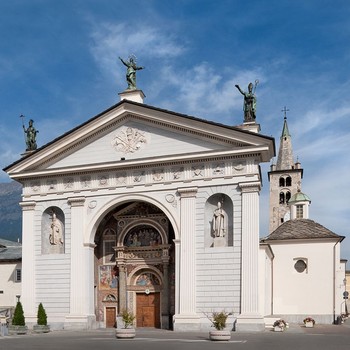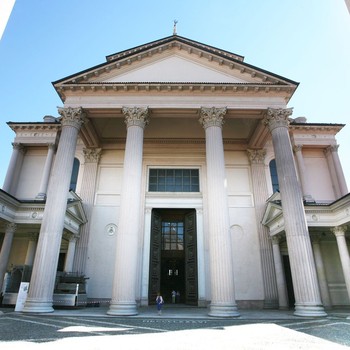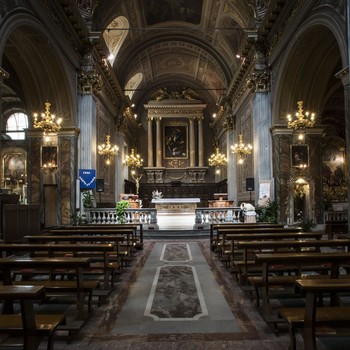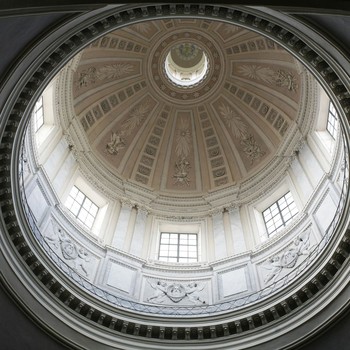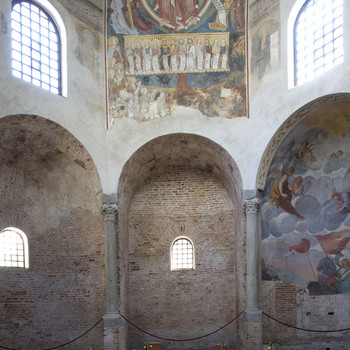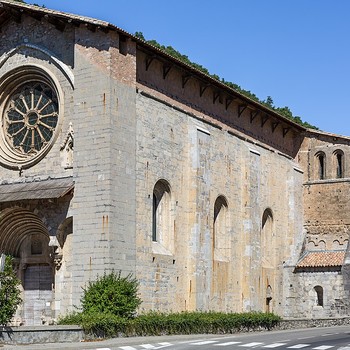Cathedral of Santa Maria Assunta
Diocesi di Aosta ( sec. IV; XI; XIX )
Founded at the end of the 4th century, Aosta Cathedral was rebuilt seven centuries later. It was further modified by major refurbishments in the 15th–16th and 19th centuries.
Cathedral of Santa Maria Assunta
Diocesi di Novara ( sec. IV; XX )
Novara Cathedral is a complex building, whose 19th-century structure designed by Alessandro Antonelli features details from the Early Christian and Romanesque periods, while the interior houses a wealth of artworks.
Cathedral of Santa Maria del Bosco
Diocesi di Cuneo-Fossano ( sec. XVII; XIX )
The church became one of the most important parishes in the town after Mondovì’s elevation to diocese in 1388.Throughout the 17th century it was subject to many interventions and in 1817, with the establishment of the diocese, it became the cathedral.
Cathedral of Sant’Eusebio
Diocesi di Vercelli ( sec. XII; XVI; XIX )
Founded in ancient times, the cathedral was rebuilt from 1570 onwards, by order of Cardinal Ferrero. The latest restoration work was completed in 2012, under Archbishop Enrico Masseroni.
Cattedrale Nostra Signora Assunta
Diocesi di Acqui ( sec. XI; XV; XVII )
La cattedrale Nostra Signora Assunta della diocesi di Acqui, fu fondata dal vescovo Primo intorno all’anno Mille. Conserva il prezioso trittico dell'Annunciazione o della Madonna di Monserrat del pittore catalano Bartolomé Bermejo.
Pinerolo Cathedral
Diocesi di Pinerolo ( sec. X; XV; XIX )
The cathedral, dedicated to Saint Donatus, Bishop of Arezzo, is mentioned at the end of the 10th century.
Battistero
Diocesi di Novara ( sec. V; X; XV )
Il battistero del Duomo di Novara costituisce il più antico edificio della città tuttora esistente ed una delle più antiche architetture paleocristiane del Piemonte.
Cathédrale Notre-Dame du Bourg
Diocesi di Cuneo-Fossano ( sec. XII; XIII )
Edificata tra XII e XIII secolo, è una delle chiese romaniche più imponenti della Provenza per dimensioni. Fondata nel cuore della città antica già spopolata nel X secolo, conserva affreschi quattrocenteschi della bottega del Maestro di Lusernetta.
Cathedrals
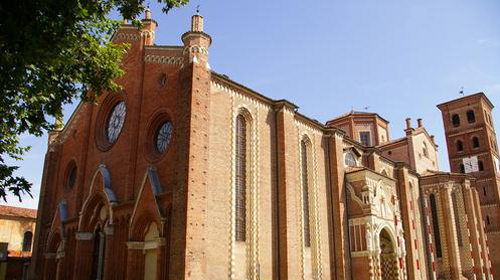
A cathedral is the principal church of a diocese. The name is derived from the bishop’s cathedra, or throne, situated at the end of the apse, behind the altar, so that the ministrant faces the congregation. If the altar is set against the wall, the cathedra is on the Gospel side. A cathedral may be designated metropolitan, primatial or patriarchal, according to the authority of its bishop. Cathedrals are the setting for the most solemn liturgical celebrations, such as ordinations, the chrismal mass on Maundy Thursday, the feasts of particular churches, and the papal masses with apostolic blessing on solemn feast days.



